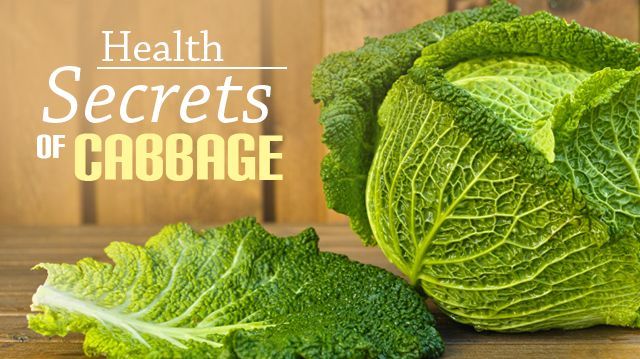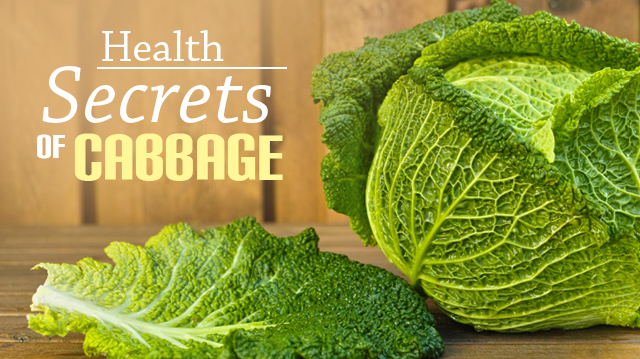
Cabbage is a leafy vegetable hailing from the Brassica family, which has been used by many cultures for over 3,000 years. Over this time, it has been cultivated in numerous varieties, from the vibrant purple cabbage to the frilly-leaved savoy cabbage.
Today, cabbage is used in an impressive array of dishes, ranging from stir-fries and slaws to fermented products such as sauerkraut and kimchi. Regardless of how we prepare it, cabbage has many health benefits — so many, in fact, that after reading this, your excuses for not eating it are going to be hard to come by.
Cancer prevention
Cabbage, as with most cruciferous vegetables, is widely recognised for its ability to pack a powerful antioxidant punch. As a result, cabbage can play an important role in eliminating free radicals (key contributors to cancer and other detrimental health conditions) from the body.
In addition to its free-radical fighting abilities, cabbage also contains a number of anticarcinogenic compounds, including lupeol, sulforaphane and sinigrin. These compounds are thought to encourage enzyme activity in the body and prevent the formation of tumors, which can result in cancer. As such, regular consumption of cabbage can significantly reduce your risk of cancer.
Potent source of vitamin C
Cabbage is positively brimming with vitamin C, the “golden girl” of the vitamin brigade. Vitamin C performs a myriad of roles in the body, including supporting the immune system, eliminating free radicals, fast-tracking healing of wounds and damaged tissues, and supporting healthy brain function. In fact, cabbage is actually higher in vitamin C than oranges, which have traditionally been promoted as one of the best sources of this nutrient. Find out more about the benefits of vitamin C here.
A good source of sulphur
As with many members of the Brassica family, cabbage is rich in sulphur. Sulphur is an important nutrient for fighting infections and encouraging healing. If ulcers are a problem for you, getting plenty of sulphur from your trusty cabbage can reduce their frequency and severity.
Encourages brain function
Cabbage is one of the highest food sources of vitamin K, a fat-soluble vitamin that plays an important role in blood clotting, bone health and prevention of heart disease. Found primarily in red cabbage, vitamin K is also a vital component in the production of sphingolipids, the myelin sheath around our bodies’ nerves. This sheath protects nerves from damage and decay. Therefore, eating foods that are rich in vitamin K can help protect you from neural degeneration and a whole host of neural diseases. It is estimated that approximately 80 percent of Americans are deficient in vitamin K, so get munching!
Rich in anti-inflammatory compounds
 Cabbage is reported to contain a potent concoction of cadmium-binding complexes in its leaves, perhaps the most important of which is glutamine. Glutamine is widely heralded as one of the most important anti-inflammatory agents you can get your hands on. Eating plenty of cabbage can reduce the effects of inflammatory ailments in your body and can even assist with allergies, irritation, joint pain and skin disorders.
Cabbage is reported to contain a potent concoction of cadmium-binding complexes in its leaves, perhaps the most important of which is glutamine. Glutamine is widely heralded as one of the most important anti-inflammatory agents you can get your hands on. Eating plenty of cabbage can reduce the effects of inflammatory ailments in your body and can even assist with allergies, irritation, joint pain and skin disorders.
Reduces blood pressure
Cabbage is also a good source of potassium, which is a vasodilator. This means that it opens up blood vessels and eases the flow of blood, ensuring the blood isn’t being forced through constricted arteries and veins, which would otherwise place your body under considerable stress. As a result, getting a healthy dose of potassium from cabbage is a great way to protect yourself from elevated blood pressure, which in turn can decrease your risk of heart attack and stroke.
Finally convinced that cabbage should be on your next supermarket shopping list? Check out these easy recipes for making super-healthy sauerkraut and kimchi.
–Liivi Hess
Liivi is an Integrative Nutrition Health Coach and is training to become a doula. She inspires women to find peace and personal power by taking control of health and fertility naturally. Liivi‘s passion is ancestral nutrition and primal lifestyle design. She and her partner Will live between Toronto, Canada and Queenstown, New Zealand.
Sources:
http://jama.jamanetwork.com/article.aspx?articleid=416446
http://www.jlr.org/content/13/3/364.short
http://econtent.hogrefe.com/doi/abs/10.1024/0300-9831.73.2.135
http://www.sciencedirect.com/science/article/pii/S0031942207000866

